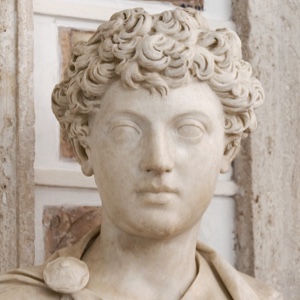
Marcus Aurelius (121 – 180) was a Roman emperor, ruling from 161 to 180 A.D., and Stoic philosopher. Marcus was the last of the rulers traditionally known as the “Five Good Emperors.” He is also seen as the last emperor of the “Pax Romana,” an age of relative peace and stability for the Roman Empire. His personal philosophical writings are a significant source of the modern understanding of ancient Stoic philosophy.

Quotes by Marcus Aurelius…
Cast away your opinion and you are saved. Who hinders you from casting it away?
Inquire of yourself as soon as you awaken from sleep whether it will make any difference to you, if another does or does not do what is just and right. It will make no difference.
When you have been compelled by circumstances to be disturbed in any manner, quickly return to yourself, and do not continue out of tune longer than the compulsion lasts. You will have increasing control over your own harmony by continually returning to it.
Today I have escaped from all trouble, or rather, I have cast out all trouble, for it was not outside me, but within, and in my opinions.
As physicians always have their instruments ready for cases which suddenly require their skill, so do you have principles ready for insight into both divine and human affairs, and for doing everything, even the smallest, with an awareness of the bond which unites the divine and the human. For you will not do anything well which pertains to man without also doing well in the divine, and vice versa.
There is no one who hinders you from always doing and saying the things which are according to the nature of which you are a part.
Regarding that which happens in harmony with nature, we ought to blame neither gods, for they do nothing wrong either voluntarily or involuntarily, nor men, for they do nothing wrong except unconsciously. Consequently, we should blame no one.
It is in our power to have no opinion about a thing, and not to be disturbed in our soul, for things themselves have no natural power to form our judgements.
The ruling faculty does not disturb itself, I mean, it does not frighten itself or cause itself pain… The guiding principle in itself wants nothing, unless it makes a want for itself, and therefore it is free.
Remember that the ruling faculty is invincible; when self-collected it is satisfied with itself… therefore the mind which is free from passions is a citadel, for man has nothing more secure to which he can fly for safety.

